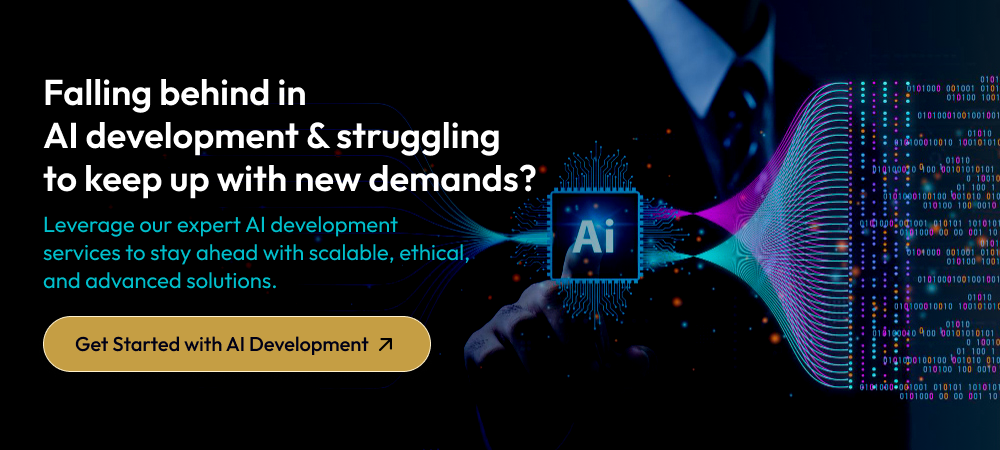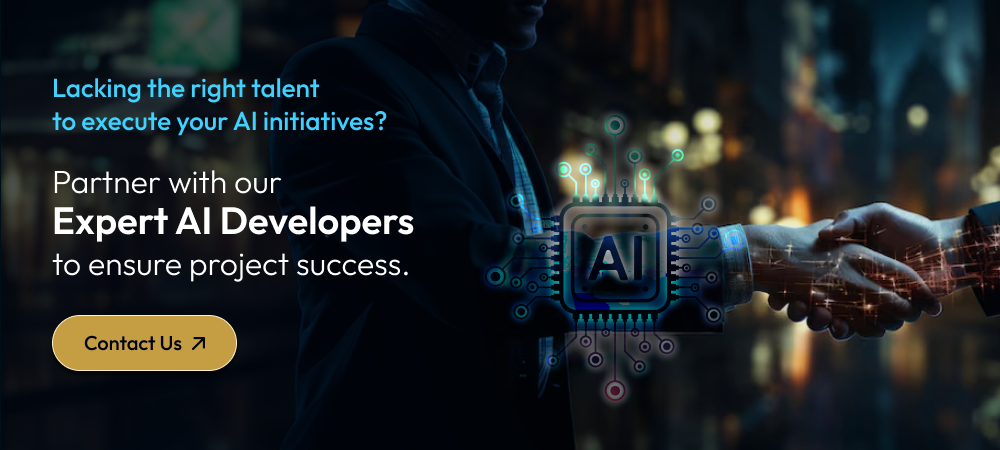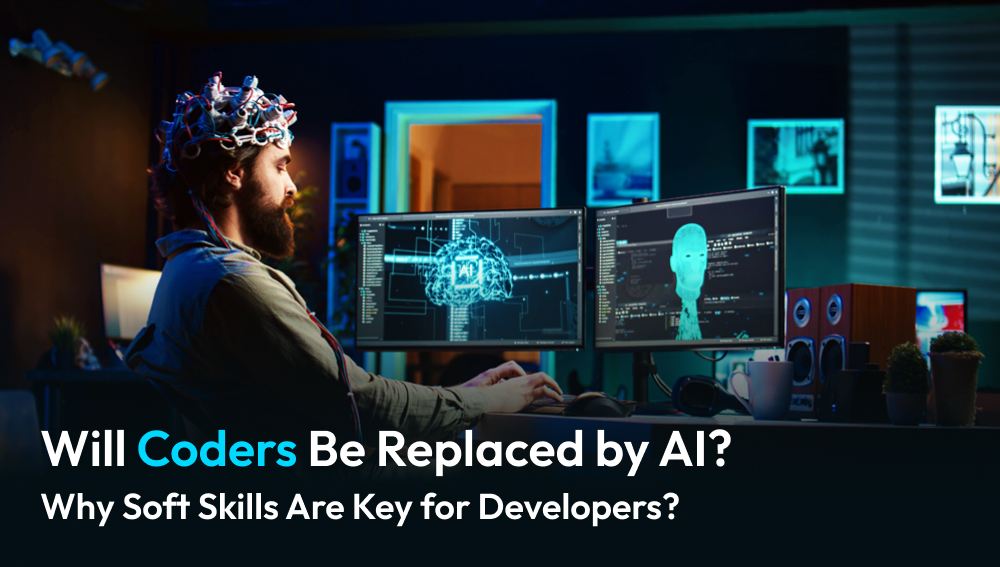
As artificial intelligence (AI) continues to revolutionize industries, the role of developers is undergoing a dramatic transformation. It’s no longer enough for developers to be masters of coding languages and algorithms—today’s corporate world demands much more. AI challenges are reshaping the way developers contribute, requiring them to broaden their skill sets beyond technical expertise.
Imagine this: You’re an expert coder, someone who can tackle complex algorithms in your sleep. But as AI advances, you’re no longer just a coder; you’re now a decision-maker, a problem-solver, and sometimes, even a philosopher. A recent report from McKinsey reveals that by 2030, about 30% of tasks in 60% of occupations could be automated by AI and machine learning, including many aspects of software development. But here’s the catch—while AI might automate routine tasks, it can’t replace human judgment, creativity, or ethical considerations.
Think of it this way: AI is like a super-smart assistant that can help with the grunt work, but it needs direction, context, and guidance—your guidance. Developers today need to think critically about what they’re building, often as much as why they’re building it. Studying fields like philosophy or ethics isn’t just for scholars—it’s becoming part of the toolkit for modern developers who collaborate with AI.
This shift means that to succeed in the age of AI, developers need to cultivate a new set of non-technical skills, such as ethical decision-making, creative problem-solving, and team collaboration.
In a world where 47% of jobs (according to Oxford University) are at risk of automation, developers are not at risk of being replaced—but those who fail to adapt might find themselves outpaced. The question is not “will coders be replaced by AI?” but rather, “how can coders collaborate with AI to discover their full potential?”
So, the challenge for developers isn’t just to keep up with the latest technology but to develop the right balance of technical and non-technical skills that will make them indispensable in an AI-driven world. Are you ready to take on AI’s new challenge? Let’s go!
- The Changing Role of Developers in the Age of AI
- The Evolving Skill Set of AI Developers
- Beyond Coding: AI Demands a New Approach
- Soft Skills for the AI Age
- How AI Challenges Traditional Development Frameworks
- Real-World Example: AI in Healthcare Development
- AI in Healthcare App Development
- Embracing the Future of Development with AI
- Conclusion
- Frequently Asked Questions
- Will AI replace programmers entirely?
- What skills should developers focus on to stay relevant in the AI era?
- Why is there such a strong emphasis on soft skills for developers now?
- Can AI help developers speed up their workflow?
- How can I make sure that my company’s developers are ready for AI-driven development?
- What are the ethical considerations developers must account for when using AI?
- How does AI improve productivity without sacrificing quality in development?
- What is the role of developers in AI-driven development frameworks?
- How can businesses integrate AI into their development processes?
- Is there a risk of over-reliance on AI in development?
The Changing Role of Developers in the Age of AI
In the early days of software development, education, and training were heavily focused on mastering complex programming languages. Developers were seen primarily as technical problem solvers, executing code and building systems. Fast forward to today, and the integration of AI into development workflows has reignited the debate on what skills truly matter for developers.
As AI takes on a greater role in coding, companies are increasingly seeking well-rounded developers with critical AI developer skills who can think critically, adapt to changing environments, and collaborate with AI to deliver optimal solutions. It’s not just about coding anymore—it’s about understanding the bigger picture and how AI’s new challenge is pushing developers to elevate their approach.
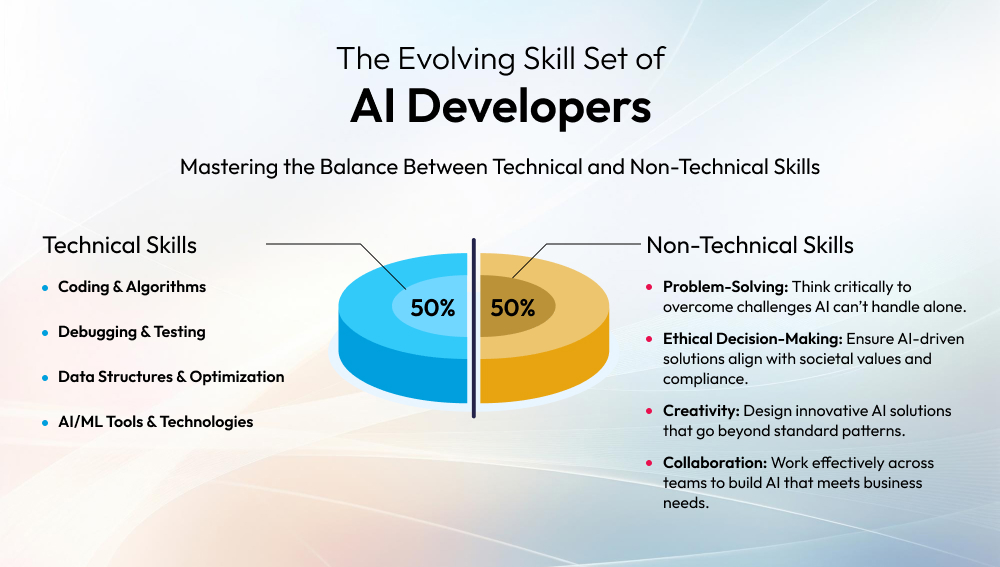
Beyond Coding: AI Demands a New Approach
Gone are the days when developers could rely solely on their technical know-how. In today’s AI-driven environment, developers must approach problems from a holistic perspective. Understanding how to code is important, but knowing why a particular solution is necessary and how it impacts the end-user is just as critical.
For example, AI tools like GPT-4 can handle much of the code generation, leaving developers to focus on higher-level decision-making. This requires developers to engage with AI tools as if they were junior team members—providing context, reasoning, and ethical oversight to ensure the AI is generating appropriate solutions. The AI challenge is clear: developers must go beyond writing code and become problem-solvers who guide AI in creating effective outcomes.
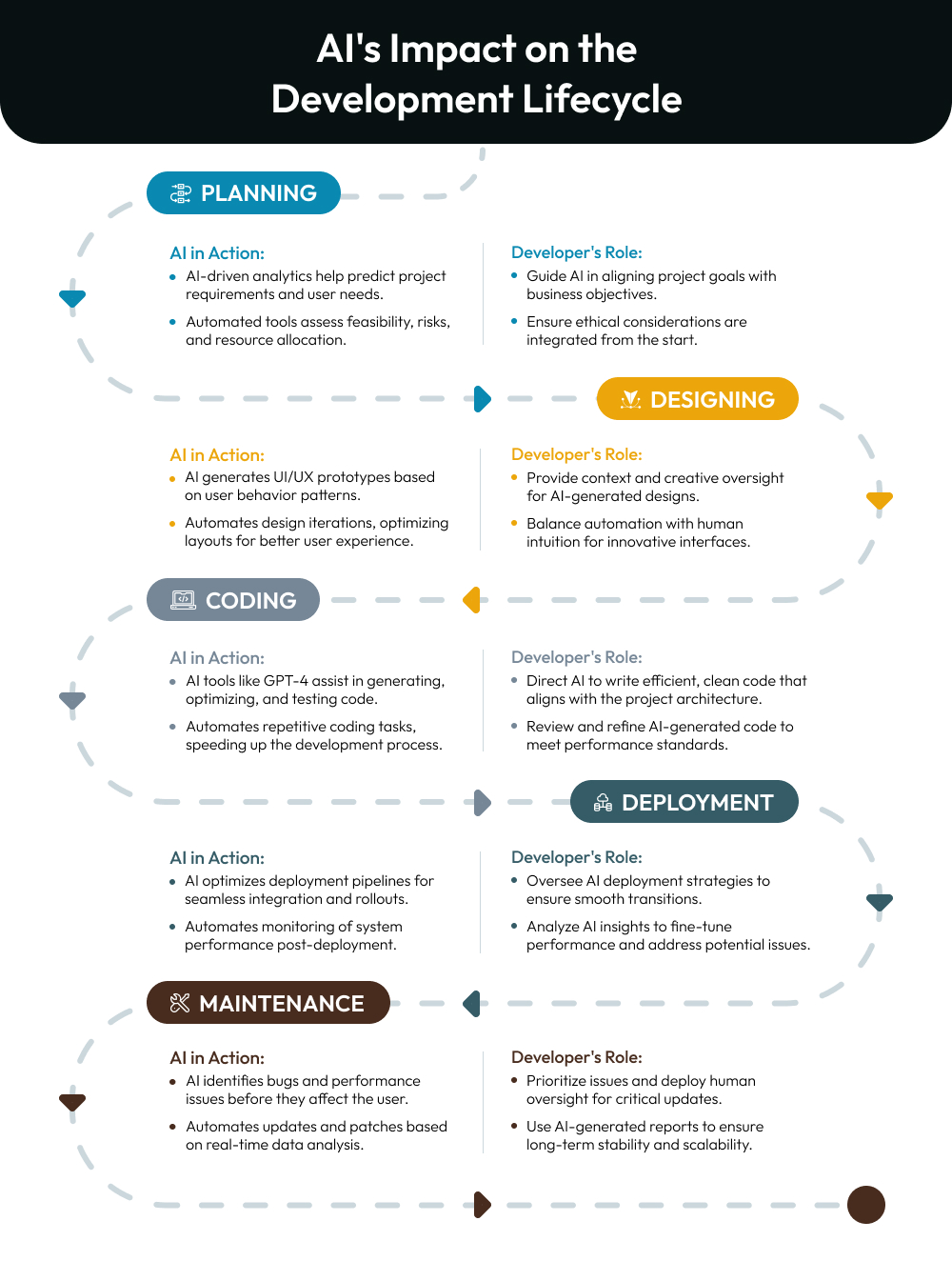
Soft Skills for the AI Age
In an AI-driven development environment, soft skills are no longer optional; they are a necessity. Developers who cultivate these abilities will not only stand out but will also be more effective in collaborating with both humans and machines. AI developer skills like empathy, critical thinking, and ethical reasoning are becoming just as important as technical prowess.
Key Non-Technical Skills Developers Need:
- Ethical Decision-Making: AI is powerful, but developers need to ensure it’s being used responsibly. Developers must be able to make judgment calls that align with company values and industry regulations.
- Creative Problem Solving: Developers need to prompt AI tools in innovative ways to get the best results. Crafting thoughtful, out-of-the-box prompts can lead to unexpected and valuable solutions.
- Collaboration Across Teams: Communication is crucial, as AI tools integrate into teams. Developers must work alongside product managers, designers, and business strategists to ensure everyone’s needs are met.
- Adaptability in Evolving Technologies: Technology moves fast, and developers must constantly adapt to new tools, frameworks, and ethical concerns. The ability to pivot and learn quickly is now a must.
How AI Challenges Traditional Development Frameworks
As AI continues to evolve, traditional development models are being redefined. Developers must adapt to AI’s new challenge: AI-driven workflows, where continuous learning, flexibility, and ethical considerations are paramount.
Traditional frameworks were often linear, with clearly defined stages and limited flexibility. But AI demands continuous iteration and a more dynamic approach to development. Developers are no longer just executors of code; they are strategists, ensuring that AI-generated solutions align with business goals and ethical standards. The question on many minds is, “will coders be replaced by AI?” The answer isn’t simple—developers will need to adapt to collaborate effectively with AI, ensuring that automation enhances their work rather than replaces it.
Real-World Example: AI in Healthcare Development
Let’s look at how AI is revolutionizing healthcare app development. In a recent project, a team of developers leveraged AI to create an app that assists doctors in diagnosing patients. The developers needed to balance the technical aspects of building the app with ethical considerations—ensuring that the AI didn’t generate biased or incomplete diagnoses.
Throughout the project, the developers used AI tools to process massive datasets while they focused on ensuring that the data was applied ethically and accurately. This required cross-disciplinary collaboration, critical thinking, and a deep understanding of the healthcare industry’s regulations. The rise of AI in such critical industries also raises concerns like, “Could AI replace programmers in the long run?” While AI may take over some coding tasks, developers’ human intuition and decision-making remain irreplaceable.
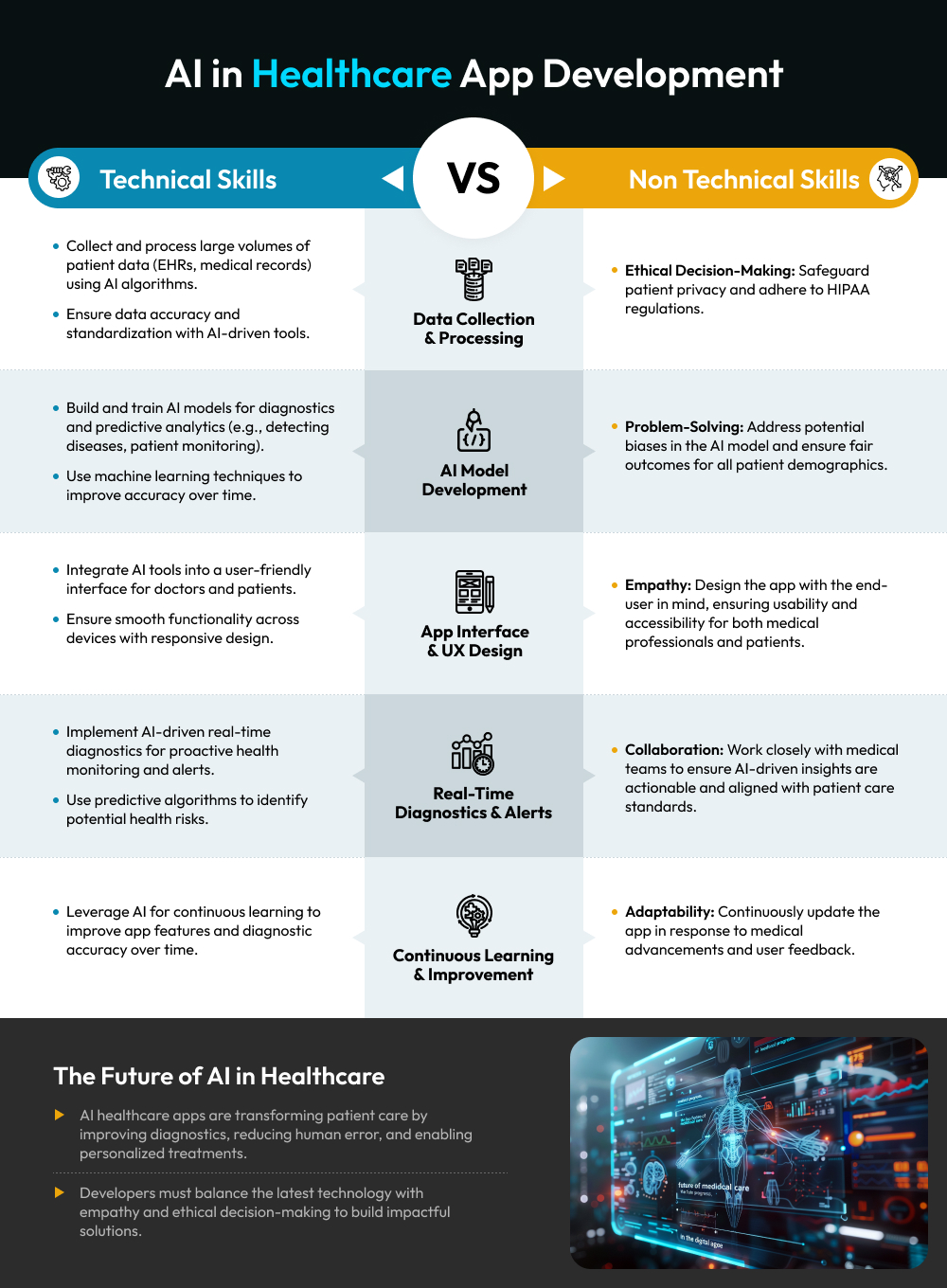
Embracing the Future of Development with AI
The increasing integration of AI into development workflows doesn’t diminish the importance of technical skills, but it does raise the bar for developers. Those who want to succeed in this new landscape must go beyond coding. They must cultivate skills like critical thinking, empathy for end-users, and ethical decision-making.
At the end of the day, well-rounded developers will not only thrive in AI-driven environments but also drive innovation and lead their teams to success. For organizations seeking to excel in this space, it’s crucial to hire AI developers who possess both technical expertise and the non-technical skills necessary for effective AI collaboration.
Conclusion
The role of developers is undergoing a transformation in the age of AI. The focus is shifting from pure technical expertise to a balanced skill set that includes problem-solving, creativity, and ethics. Developers who can adapt to these changes will become leaders in their field, guiding AI systems to produce groundbreaking results. By combining hard and soft skills, developers will remain invaluable assets to their organizations.
As we continue to integrate AI into development workflows, the need for well-rounded developers who understand the importance of context, reasoning, and ethical considerations will only grow. For businesses looking to capitalize on this shift, AI development services can provide the tools and expertise necessary to stay ahead of the curve.
Frequently Asked Questions
1. Will AI replace programmers entirely?
No, AI will not completely replace programmers. While AI can automate certain coding tasks, developers are still essential for guiding AI, making ethical decisions, and managing the overall development process. AI tools are designed to assist developers, not replace them. The real AI challenge is how developers and AI can collaborate effectively to enhance productivity.
2. What skills should developers focus on to stay relevant in the AI era?
In addition to technical skills like coding, developers must focus on AI developers skills such as ethical decision-making, problem-solving, creativity, and collaboration. These skills are crucial for working effectively alongside AI and ensuring the successful implementation of AI-driven solutions. Developers who adapt will thrive, while those who don’t risk being left behind as the landscape evolves.
3. Why is there such a strong emphasis on soft skills for developers now?
As AI takes on more technical tasks, developers must shift their focus to higher-level decision-making. Soft skills like critical thinking, empathy for end-users, and ethical reasoning allow developers to ensure that AI tools are being used responsibly and effectively in real-world applications. AI developers skills are no longer just about coding—they’re about navigating the AI challenge of balancing technical expertise with human judgment.
4. Can AI help developers speed up their workflow?
Yes, AI can significantly speed up the development process by automating repetitive coding tasks, generating code suggestions, and optimizing workflows. However, developers still play a key role in guiding AI, refining its outputs, and making critical decisions that AI cannot handle on its own. This synergy between humans and AI highlights why the question “will coders be replaced by AI?” is more complex than a simple yes or no.
5. How can I make sure that my company’s developers are ready for AI-driven development?
To ensure your developers are prepared for AI-driven development, encourage continuous learning in both technical and soft skills. Consider the option to hire AI developers who possess expertise in leveraging AI tools while also excelling in problem-solving, creativity, and ethical decision-making. Companies that embrace the AI challenge will be better positioned to succeed in the future.
6. What are the ethical considerations developers must account for when using AI?
Developers must consider issues like data privacy, bias in AI algorithms, and the ethical implications of AI-generated solutions. Ensuring that AI is used responsibly and does not harm users or perpetuate unfair biases is crucial in today’s AI-driven development landscape. This is one of the most significant AI challenges that developers face today.
7. How does AI improve productivity without sacrificing quality in development?
AI improves productivity by automating time-consuming tasks such as code generation and debugging. This allows developers to focus more on strategic decision-making, creative problem-solving, and fine-tuning the product for quality. By collaborating with AI, developers can achieve both speed and quality in their work without sacrificing the human touch that AI lacks. AI development services can help businesses integrate AI tools to maximize productivity.
8. What is the role of developers in AI-driven development frameworks?
Developers are key in AI-driven development frameworks as they ensure that AI tools are used appropriately. Their role involves providing oversight, ethical guidance, and creative input to ensure that AI-generated code or solutions align with business goals and ethical standards. While AI can assist, developers ensure the AI aligns with human values, which keeps developers essential in these frameworks.
9. How can businesses integrate AI into their development processes?
Businesses can integrate AI into their development processes by adopting AI development services, training developers to use AI tools effectively, and focusing on a collaborative approach where developers and AI work together to optimize productivity and innovation. This helps businesses adapt to the ongoing AI challenge and remain competitive.
10. Is there a risk of over-reliance on AI in development?
There is a potential risk of over-reliance on AI if developers use it without providing proper oversight and guidance. While AI can automate many tasks, human input is critical for ensuring that the solutions generated by AI are ethical, effective, and aligned with user needs. Developers who rely too heavily on AI may find themselves asking, “will coders be replaced by AI?” but the answer depends on how well they balance their roles in guiding AI.

